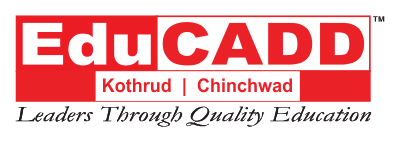Importance of Forging Domain Training for Design Engineers
Forging Domain Training mainly targets the training of people in the procedures and techniques to be followed in metal forging. Hammers, presses, or dies apply compressive forces to mold metal in the manufacturing method known as forging. The objective of training is to educate on the concepts of forging, safety, equipment, and the industrial application.
Why Forging Domain Training Is Important In India
Forging Domain Training is important because the Indian industry is witnessing a high growth rate for its manufacturing sector, majorly in automotive, aerospace, and defense sectors. India competes with world-class standards. Therefore, the country requires high-quality forging domain professionals. These professionals ensure that forged components are high-quality and long-lasting, with minimal defects. A skilled workforce, trained in up-to-date techniques of advanced forging, safety protocols, and strict quality control, ensures a high-quality output with reduced defects. It also reduces the skill gap, brings in innovation, and attracts foreign investments. The preparation of a workforce with the required knowledge provides support for the country’s industrial development and competitiveness.
Wide Range of Topics Covered in Our Programs
- Introduction to Forging
- Materials and Metallurgy
- Forging Processes and Techniques
- Forging Simulation and CAD Software
- Die Design and Maintenance
- Forging Design and Optimization
- Heat Treatment in Forging
- Health and Safety in Forging
- Applications of Forging in Different Industries
Key Features Of The Course
- Introduction to Basic Forging –Learn the basics of forging, including hot and cold forging procedures. In addition to this, understand the types of metals commonly used, such as steel, aluminum, and titanium.
- Equipment and Tools – Acquire practical experience with forging machines, such as hammers and presses. Learn about modern automation in forging, including CNC machines and robotic systems. Also, familiarize yourself with the most common tooling, such as dies, anvils, and hammers.
- Material Behavior and Mechanics – Learn how metals deform during the process of forging and how stresses and strains affect the deformation. Learn how heat treatments such as annealing, quenching, and tempering are used in achieving quality results.
- Quality Control and Testing – Common forging defects include cracks, shrinkage, and others which must be identified. Find inspection and testing methods, including NDT. Understand process optimization on the improvement of quality and efficiency in forging.
- Forging Design and Simulation – Examine the fundamental principles for forgeable part design, and discover why simulation software is highly used to model and simulate the forging process even before actual production begins.
- Safety Standards and Regulations – Familiarization with standards in workplace safety, like protective equipment and the environmental impacts, including energy usage and waste handling in the process of forging.
- Practical Training and on-the-job training – Participate in practical hands-on workshops and demonstrations in forging domain training programmes. Apply and develop skills to solve practical problems of real-life productions.
Who Should Enroll in Forging Domain Training?
- Casting, Forging & Sheet Metal Design Engineers
- Mechanical Engineering students
- Students Having Basic Understanding Of Material Science
- Metallurgists and Materials Scientists
- Production Managers and Supervisors
Enroll Now!
Do not let an opportunity go pass for being a part of a technological revolution. Join our forging domain training Program and take the first step towards mastering this cutting-edge technology. Be it any part of the country, Bangalore, Chennai, or any other, our Institute stands at your door-step to take a bright step towards innovation.


Leave A Comment